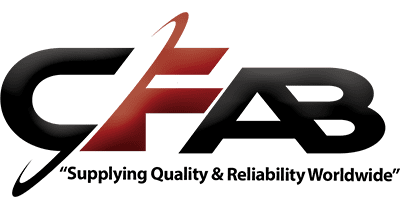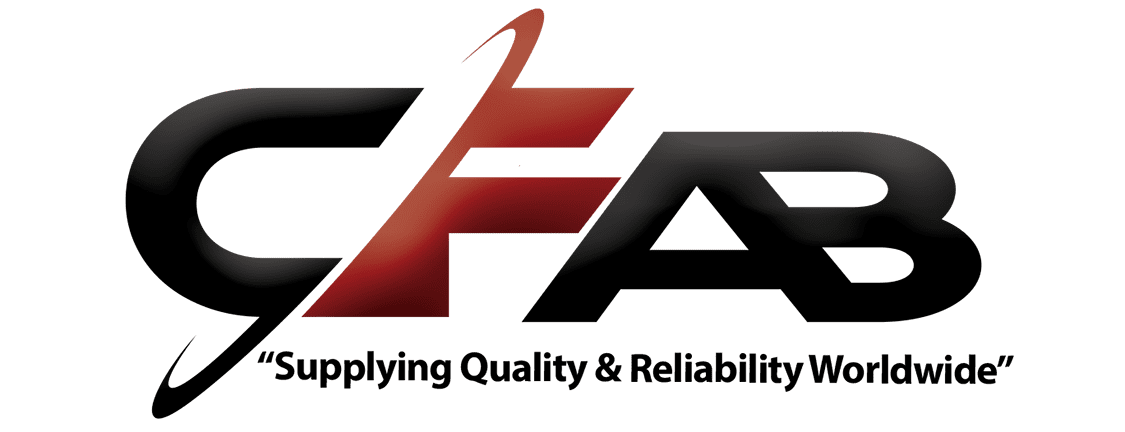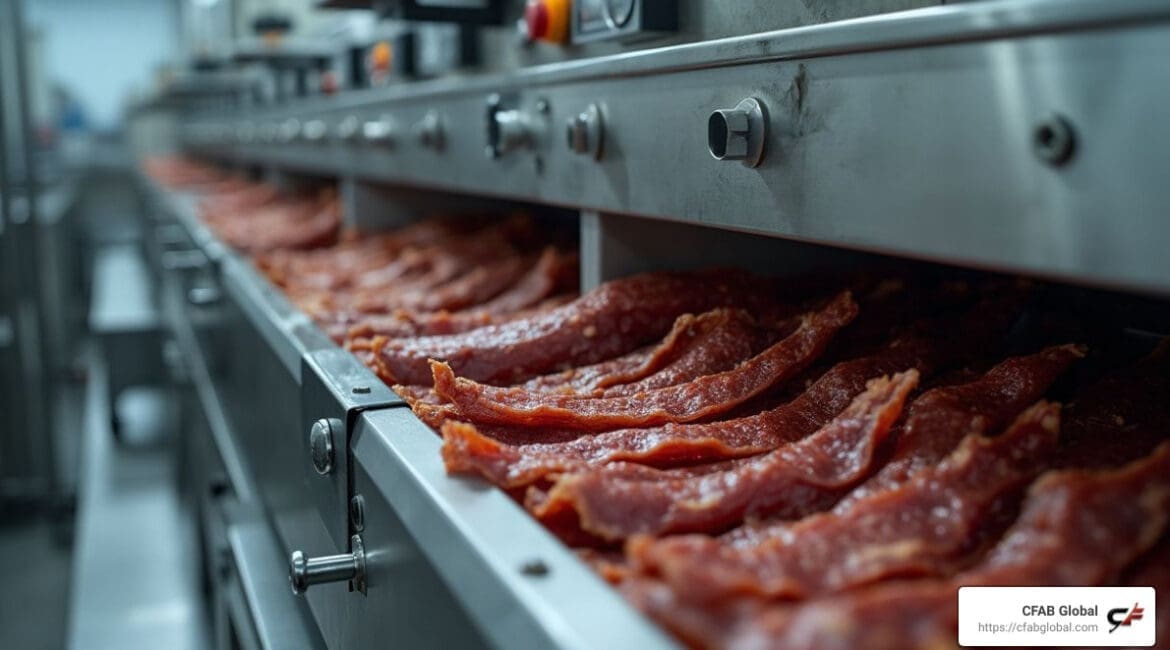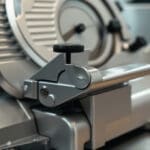Commercial jerky making equipment is a vital asset for any business aiming to meet the demand for high-quality, protein-rich snacks. Jerky is not only a sustaining snack, but it is also a versatile product that boasts health benefits and enjoys a long shelf life. Choosing the right equipment can ensure that your production process is efficient and your product is consistently top-notch. If you’re in search of the best commercial jerky making equipment, here’s what you need to know:
- Efficiency in production
- Consistency in product quality
- Durability and reliability
- Ease of use and maintenance
The soaring trend of jerky as a health-conscious snack highlights the need for effective commercial jerky making equipment. With the right tools, businesses can create jerky products that stand out in quality and taste.
My name is Todd Cleppe, and I have spent over 25 years optimizing machinery processes across various industries, including food manufacturing. My expertise in commercial jerky making equipment allows me to help companies improve their production capabilities, ensuring reliability and quality every step of the way. Next, let us dig into the jerky-making process.

Quick commercial jerky making equipment definitions:
– clean in place technology
– commercial food manufacturing equipment
The Process of Making Jerky
Making jerky is both an art and a science. It involves selecting the right cut of meat, marinating it with flavorful seasonings, and then dehydrating it to perfection. Each step is crucial in ensuring the final product is tasty, nutritious, and shelf-stable.
Choosing the Right Cut
The journey to great jerky begins with the meat itself. Lean cuts like beef eye of round, top round, or sirloin tip are preferred. Precision slicing is key here. A uniform cut ensures even drying, which is vital for both texture and flavor. Commercial jerky slicers are indispensable for achieving this level of precision. These machines can handle high volumes, slicing through the toughest meats with ease and ensuring every piece is just right.
Marinating Techniques
Marination is where the magic happens. It’s the step that infuses the meat with flavor and tenderness. A good marinade typically includes a mix of soy sauce, Worcestershire sauce, and spices. But the possibilities are endless, allowing for creativity and customization. The trend towards customizable products, like the DIY jerky offerings by companies such as Slant Shack Jerky, underscores the importance of this step. By experimenting with different seasonings, you can create unique flavors that cater to diverse tastes.
Dehydrating and Cooking
Once marinated, the meat is ready for dehydration. This process removes moisture, preserving the jerky and concentrating its flavors. A dehydrator is the tool of choice, particularly for commercial operations. Precision drying is essential to maintain the meat’s quality and safety. The Cosori Premium and Camp Chef dehydrators are popular choices for their efficiency and reliability in large-scale production.
In conclusion, mastering the jerky-making process requires a careful balance of technique and equipment. From slicing to marinating to dehydrating, each step plays a crucial role in crafting the perfect jerky. With the right tools and a bit of creativity, businesses can produce jerky that not only meets but exceeds customer expectations.

Next, we will explore the role of commercial jerky making equipment in optimizing production and ensuring quality.
Commercial Jerky Making Equipment
When it comes to producing jerky at a commercial scale, having the right equipment is essential. Commercial jerky making equipment not only boosts efficiency but also ensures precision and consistency in every batch. Let’s explore the tools that can transform your jerky production.
Commercial Jerky Slicers
In jerky production, precision is paramount. Commercial jerky slicers are designed to handle high volumes of meat with incredible accuracy. These machines can slice through large quantities of meat quickly, ensuring uniformity in thickness. This uniformity is crucial for even drying, which directly impacts the texture and flavor of the jerky.

The value of these slicers becomes evident when you consider the scale of production in restaurants, delis, and butcher shops. With a commercial slicer, you can process more meat in less time, allowing for a more streamlined operation. This efficiency not only saves time but also reduces labor costs, making it a smart investment for any business looking to expand its jerky offerings.
Dehydrators for Commercial Use
Dehydrators play a pivotal role in the jerky-making process by removing moisture and intensifying flavors. For commercial operations, choosing the right dehydrator is critical. Two popular choices in the industry are the Cosori Premium and Camp Chef dehydrators. These models are known for their reliability and ability to handle large-scale production.
The Cosori Premium dehydrator is perfect for those looking to produce consistent and high-quality jerky. It offers precision drying, ensuring that each piece retains its flavor and nutritional value. The Camp Chef dehydrator, on the other hand, is built for heavy-duty use, making it ideal for businesses with high production demands.
Both dehydrators provide features that cater to the needs of commercial operations, such as adjustable temperature settings and ample drying space. These features ensure that the dehydration process is both efficient and effective, resulting in a superior product that meets industry standards.
In summary, investing in commercial jerky making equipment like slicers and dehydrators can lift your production process. With the right tools, businesses can produce high-quality jerky that satisfies customer demands and stands out in the market.
Next, we’ll explore custom solutions for jerky production, focusing on custom equipment layouts and designs to improve efficiency and meet specific plant needs.
Custom Solutions for Jerky Production
When it comes to crafting the perfect jerky, having equipment custom to your specific needs can make all the difference. That’s where custom solutions come into play, offering flexibility and efficiency that off-the-shelf options simply can’t match.
Custom Equipment Layouts
Imagine a jerky production line that fits your plant like a glove. CFAB Global specializes in designing custom equipment layouts that adapt to your space, not the other way around. This approach ensures that every piece of equipment is strategically placed to streamline your production process.
By involving your entire team—from engineers to sanitation experts—CFAB Global ensures that the layout not only meets your production goals but also aligns with safety and cleanliness standards. This collaborative process results in a setup that maximizes efficiency and minimizes downtime, leading to a more profitable operation.
Heavy Duty and Sanitary Design
Durability and hygiene are non-negotiable in jerky production. CFAB Global’s equipment boasts heavy-duty construction, built to withstand the rigors of high-volume use. This robustness ensures a long lifespan, reducing the need for frequent replacements and repairs.
Moreover, all equipment meets AMI Sanitary Equipment Design standards, making them easy to clean and safe to use. This sanitary design is crucial in maintaining quality and compliance with health regulations, ensuring that your jerky is not only delicious but also safe for consumers.
Incorporating these custom solutions into your production line means you’re not just investing in equipment but in a custom system that boosts your plant’s overall performance. Next, we’ll dig into the importance of testing and demonstration facilities to ensure that your equipment meets all operational requirements before full-scale production begins.
Testing and Demonstration Facilities
When it comes to investing in commercial jerky making equipment, seeing is believing. That’s why testing and demonstration facilities are essential for ensuring your equipment will perform as expected in your unique production environment.
Virtual and In-Person Demos
CFAB Global offers state-of-the-art demo facilities at two convenient locations: Columbus, Ohio, and Wrexham, UK. These facilities provide an invaluable opportunity to test equipment with your specific products under real-world operating conditions. Whether you are assessing a single machine or an entire production line, the demos help you make informed decisions about your investment.
You can choose to ship your product for a virtual demonstration, where you can watch the equipment in action from the comfort of your office. This approach saves time and travel costs while still providing a clear view of how the equipment handles your product. Alternatively, you can visit the demo facilities in person for a more hands-on experience. This allows you to see, touch, and interact with the equipment, gaining insights that may not be apparent in a virtual setting.
These demonstrations are crucial for understanding how equipment will integrate into your production line and meet your operational needs. They offer peace of mind, knowing that your investment is backed by thorough testing in a controlled environment.
In the next section, we’ll address some frequently asked questions about jerky making, providing further insights into this popular snack production.
Frequently Asked Questions about Jerky Making
How do professionals make jerky?
Professionals start by selecting the right cut of meat, often opting for lean cuts like beef sirloin or turkey breast. Slicing is a critical step, requiring precision to ensure even thickness for consistent drying. Commercial jerky slicers are a game-changer here, offering high-volume slicing with best accuracy.
Next comes marinating, where the meat is soaked in a mix of seasonings to infuse flavor. This step can vary widely, with options ranging from hot & spicy to sweet & salty. The marinated meat is then placed in a dehydrator. Precision drying is crucial to achieve the perfect texture without compromising flavor. For this, professionals rely on advanced dehydrators designed for commercial use.
How profitable is a jerky business?
The jerky business can be quite profitable, thanks to its high demand and long shelf life. Jerky is a popular snack, appealing to health-conscious consumers due to its high-protein, low-fat profile. The nonperishable nature of jerky allows businesses to produce or purchase in bulk, reducing waste and maximizing profit margins.
Joshua Kace, founder of Slant Shack Jerky, capitalized on the customizable trend in jerky, seeing demand soar for his unique offerings. By allowing customers to select their own marinades and rubs, he tapped into a growing market, demonstrating that innovation and customization can significantly boost profitability.
What equipment is used to make jerky?
To produce jerky efficiently, several pieces of commercial jerky making equipment are essential. Commercial slicers are vital for cutting meat into uniform strips quickly. High-quality dehydrators are used to dry the meat evenly and precisely, which is crucial for maintaining flavor and texture.
For food processing and packaging, BE Machinery offers solutions like Hygiene Rotary Fillers and Bottles Sterilization Machines, ensuring the final product is safe and ready for market. Additionally, Graco provides automated lubrication systems to keep machinery running smoothly, reducing downtime and maintaining efficiency in production.
These tools and systems streamline the jerky-making process, ensuring consistency, quality, and profitability in every batch.
Conclusion
At CFAB Global, our mission is to improve operational efficiency and productivity for businesses across various industries. Our expertise in commercial jerky making equipment and other machinery solutions is unparalleled. We understand the intricacies of the jerky production process, from slicing to dehydrating, and offer custom solutions that meet the unique needs of each client.
Our Machine Reliability Program is a cornerstone of our service offerings. This comprehensive program is designed to optimize the performance and lifespan of critical machinery components. By providing personalized analysis, cutting-edge services, and ongoing support, we help businesses achieve maximum productivity while minimizing costly downtime.
Our commitment to delivering high-quality, reliable equipment is evident in the success stories of our clients. By partnering with CFAB Global, businesses can expect:
-
Customized Solutions: We tailor our Machine Reliability Program to address specific machinery needs, ensuring that each client receives a bespoke strategy that delivers measurable results.
-
Proactive Maintenance: Our focus on predictive maintenance strategies prevents breakdowns before they occur, keeping your operations running smoothly.
-
Increased ROI: By reducing downtime and extending machinery lifespan, we help businesses maximize their return on investment.
For those involved in the jerky industry, having the right equipment is crucial. From precision slicers to advanced dehydrators, the tools you use can make all the difference in quality and efficiency. Explore our services to find how CFAB Global can support your machinery needs and drive the success of your jerky production operations.
Trust CFAB Global to be your partner in achieving excellence in machinery management. We are committed to your success, ensuring that your equipment operates at peak performance every step of the way.
